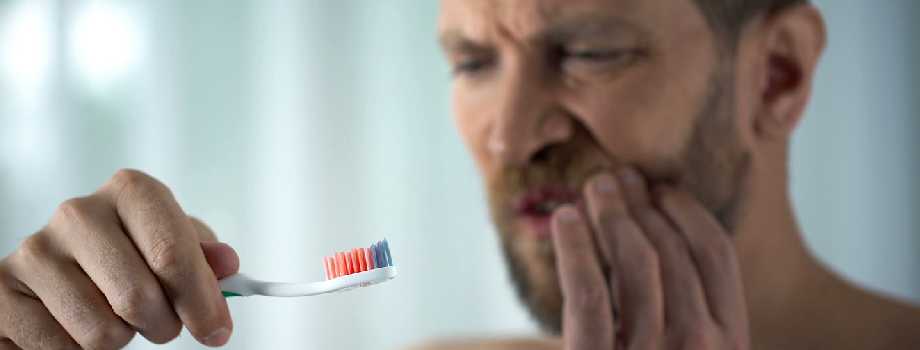In most cases, bleeding gums when brushing stems from plaque that has been allowed to accumulate at the gumline. This substance contains harmful types of bacteria that has the capability of attaching the healthy tissues that are situated near the teeth.
As more and more are permitted to build up, the gum tissue will start to suffer from inflammation and will become irritated. This not only causes bleeding gums, but it also results in the development of gingivitis – which is the first stage of the oral health condition periodontal disease.
Apart from Gum Disease, What Else Causes Bleeding Gums?
Gum disease is the most common cause of bleeding gums; however, the following may serve as culprits for this issue, too:
- Bleeding Disorders
- Brushing the Teeth in a Rough or Hard Manner
- Hormonal Fluctuations and/or Changes
- Dental Appliances with an Improper Fit
- Not Flossing Properly
- Infection
- Blood Cancer
- Vitamin C Deficiency
- Vitamin K Deficiency
- Blood Thinners
- The Use of a Toothbrush with Bristles That are too Hard
How Do I Stop My Gums from Bleeding?
There are several steps that may be taken that will help prevent or completely stop your gums from bleeding. Not all will work for everyone; however, they may help. If you find that your gums bleed when you brush, consider the following:
- You should make certain that you brush a minimum of twice daily and that you floss at least once a day. If you feel it is necessary, you may brush three times daily and floss once.
- You may rinse the mouth out with hydrogen peroxide. It may taste and feel a bit funny when it is in the mouth, but it acts as a type of disinfectant for the mouth. Remember, if you rinse with hydrogen peroxide, never swallow.
- Increase the amount of Vitamin C that you consume. Examples of foods that contain a large amount of Vitamin C include oranges, carrots, and sweet potatoes. You may also consult with your doctor to determine if taking a Vitamin C supplement is appropriate for your health.
- Vitamin K levels should also be increased. Foods that contain this nutrient include spinach, greens, and kale.
- You may also rinse your mouth out with a warm water solution that includes salt. This mixture is known for reducing bacteria levels in the mouth and completely stopping bleeding. Simply take a half of a teaspoon of salt and mix it with warm water. Swish the substance around the mouth for a few seconds and spit it out. Not only will it help reduce the number of bacteria in your mouth, it can help heal infections within the area.
Contact a Dental Professional
If you find that your gums bleed for 5 days or more, you should make an appointment with a dental professional for a deep cleaning. This will help in eliminating any plaque and tartar that has accumulated in the mouth.
Additionally, the professional will be able to evaluate your mouth and surrounding areas to determine if gum disease is to blame. If it is, they will do an examination to determine how severe the condition is and offer treatment options. To learn more or to set up an appointment because of bleeding gums when you brush, contact us today by calling: 316-330-4050

